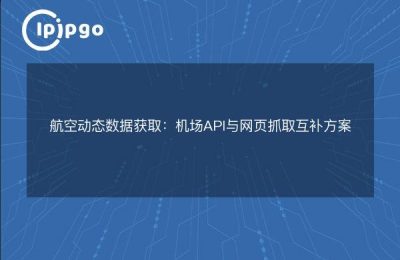
HTTP Proxy IP plays an important role in network activities, helping users to hide their real IPs, access specific services, and so on. However, it is not perfect. Understanding the drawbacks of HTTP Proxy IP can help us better weigh its usage scenarios. Below, we'll explore some of the common drawbacks.
Lower security
Since the HTTP Proxy IP is mainly used to process HTTP protocol traffic, it does not encrypt data during transmission. This means that sensitive information (e.g. login credentials, personal data, etc.) can be intercepted by third parties. It's like dropping a letter in an unlocked mailbox, where information is at risk of being snooped on.
Lack of anonymity
Although HTTP proxy IPs can hide the user's real IP, some proxy servers may add or keep the user's real IP information in the request header. In this case, anonymity is greatly reduced and the user's privacy may still be compromised.
May be slow
Using an HTTP proxy IP may result in a slower network connection. This is because requests need to be forwarded through additional servers, which is like a detour and increases network latency. In addition, the limited performance and bandwidth of some proxy servers may also affect speed.
Not all protocols are supported
The HTTP proxy IP only supports traffic for the HTTP protocol and cannot handle data for other protocols such as HTTPS and FTP. This means that in some cases, users will need to additionally configure or use other types of proxies (e.g., SOCKS proxies) to fulfill the requirements.
vulnerable to banning
Due to the widespread use of HTTP proxy IPs, certain websites and services actively detect and block proxy IPs to prevent abuse. This is like setting up an identification system at the entrance of a club to deny entry to unauthorized visitors.
Possible unreliable proxy servers
There are many free HTTP proxy IP services on the market, but there is no shortage of unreliable proxy servers. These servers may interrupt connections, log user activity, or even be used for malicious purposes. Users need to be extra cautious when using these services.
Conclusion: the rational use of HTTP proxy IP
HTTP Proxy IP is very useful in certain scenarios, but there are some drawbacks that should not be ignored. Understanding these limitations helps us to make informed choices when using them and ensure the security and efficiency of our network activities.
If you need a safer and more stable proxy service, why not learn about our products and experience a quality web proxy service. Thank you for reading!








